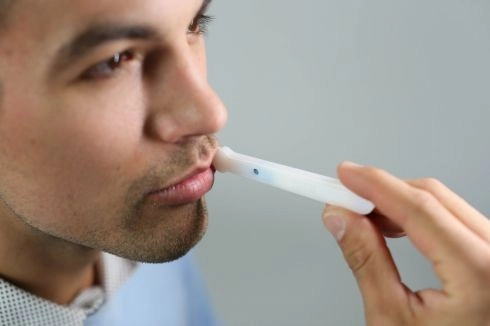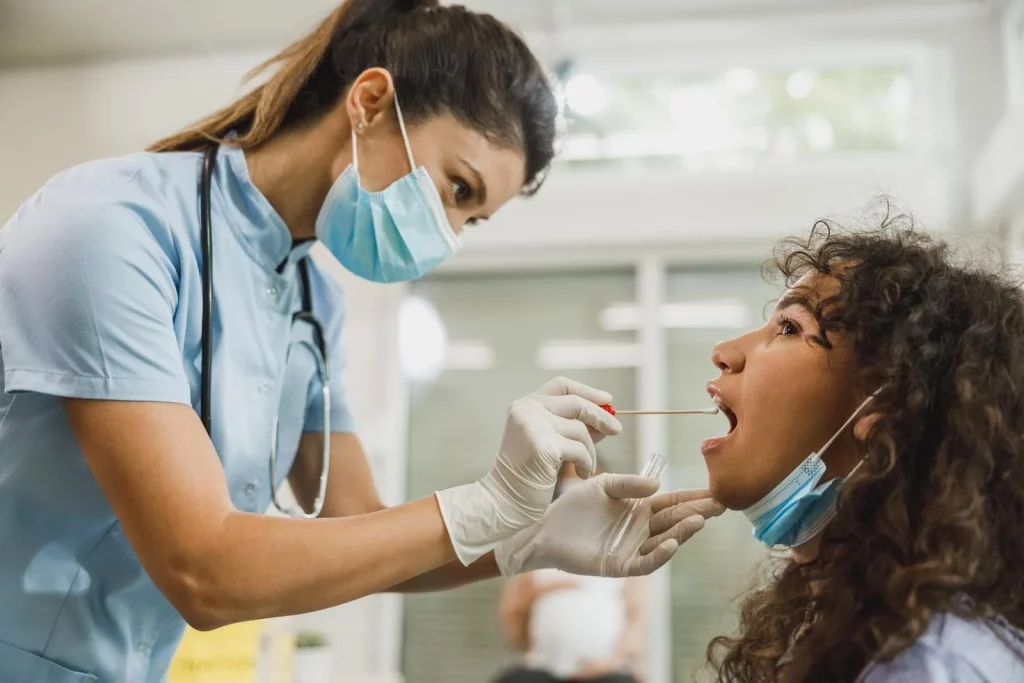Saliva drug testing is a common practice in many industries, including healthcare, law enforcement, and workplace safety. However, it has also found its way into the entertainment industry, specifically in reality television shows.
The use of saliva drug testing in reality TV has become a controversial topic, with proponents arguing that it ensures the safety and well-being of contestants, while critics argue that it invades contestants’ privacy and perpetuates a culture of mistrust.
This article will explore the process of saliva drug testing in reality TV shows, including how it is used to detect the presence of drugs in contestants’ systems. Saliva drug testing involves collecting a sample of saliva from individuals and analyzing it for the presence of substances such as cannabis, cocaine, amphetamines, opioids, and more.
By examining this topic from multiple perspectives, this article aims to provide a comprehensive understanding of the complex issues surrounding the process of saliva drug testing in reality TV shows.
Key Takeaways
- Saliva drug testing is a common method of detecting drugs in reality TV shows to ensure a safe and fair competition.
- The use of saliva drug testing raises ethical and legal concerns, such as invasion of privacy and accuracy issues.
- The impact of drug testing on contestants and production teams should be carefully considered to balance the benefits with the ethical and legal implications.
- Reliable and accurate testing methods, as well as transparency about the testing process, are important to ensure the success and integrity of reality TV shows.

The Basics of Saliva Drug Testing
Saliva drug testing is a non-invasive method of detecting the presence of drugs in a person’s system by analyzing a sample of their saliva. It is an accurate means of testing for drugs, as it can detect drugs in the system within a few hours of use.
Saliva drug testing is widely used by employers, law enforcement agencies, and medical professionals to screen for drug use, as it is less intrusive than other methods such as blood or urine testing. Furthermore, saliva drug testing is subject to legal requirements, such as chain of custody procedures and laboratory certification, to ensure the accuracy and reliability of the test results.
Hence, the use of saliva drug testing in reality TV shows can provide an objective and scientific means of detecting drug use among contestants.
How Saliva Drug Testing is Used in Reality TV Shows
Examinations of contestants in certain types of televised productions have revealed the presence of substances that could negatively impact their performance. As a result, saliva drug testing has become a common practice in reality TV shows to ensure that the participants are not impaired by drugs or alcohol.
This method of testing is non-invasive and allows for immediate results, making it a convenient option for producers. However, there are ethical concerns surrounding the privacy of the contestants and the potential for false positives. Some argue that drug testing is an invasion of privacy and that it can unfairly disadvantage certain individuals.
Nevertheless, the use of saliva drug testing in reality TV shows remains a controversial topic, with arguments on both sides of the debate.
The Benefits and Drawbacks of Saliva Drug Testing in Reality TV
The utilization of drug testing in televised productions has generated both advantages and disadvantages for the individuals involved.
On one hand, it allows for a safer and more controlled environment for the participants, reducing the risk of drug-related incidents.
Additionally, it provides a level playing field for all contestants, ensuring that each person is competing on their own merit without any performance-enhancing substances.
However, there are also ethical concerns surrounding the use of saliva drug testing in reality TV shows.
Critics argue that it invades the privacy of participants and can lead to stigmatization of those who test positive for drug use.
Furthermore, there are accuracy issues with saliva drug testing, as it can produce false positives and negatives.
Overall, while saliva drug testing may have its benefits in reality TV, it also raises important ethical questions and requires careful consideration.
The Impact of Saliva Drug Testing on Contestants and Show Production
Contestants and production teams alike must navigate the impact of drug testing on the overall dynamic and success of televised competitions.
While saliva drug testing can provide a sense of security and ensure a fair competition, it also raises concerns about contestant privacy and ethical considerations.
The process of collecting saliva samples from contestants can be invasive and uncomfortable, potentially compromising their personal lives and image.
Additionally, the results of drug tests can be misleading or misinterpreted, leading to unjust disqualifications or negative public perception.
Moreover, the pressure to pass drug tests may encourage contestants to resort to extreme measures or even resort to cheating.
Thus, while saliva drug testing may seem like a necessary measure for reality TV shows, it is crucial that producers and regulators consider the potential impacts and take steps to protect the privacy and well-being of contestants while ensuring a fair and successful competition.
Future Implications and Considerations for Saliva Drug Testing in Reality TV
Implications for the future of drug testing in televised competitions should consider the potential impact on audience perceptions and the long-term success of the show.
While saliva drug testing provides a non-invasive and quick way to detect drug use, ethical concerns and legal regulations must also be taken into account.
The public may perceive drug testing as invasive and an infringement on contestants’ privacy. Additionally, there may be legal issues surrounding the accuracy and reliability of drug testing methods.
Future considerations for the use of saliva drug testing should involve clear communication with contestants about the testing process, the use of reliable and accurate testing methods, and transparency about the ethical and legal implications of drug testing in reality TV shows.
Ultimately, the success of a reality TV show depends on audience engagement and perception, and careful considerations must be made to balance the use of drug testing with the ethical and legal concerns that arise.
Conclusion
Saliva drug testing has become increasingly prevalent in reality TV shows, where contestants are subjected to regular testing to ensure they are not using illegal substances. Although it is a non-invasive and relatively easy method of drug testing, there are both benefits and drawbacks to its use in this context.
One benefit is that it can help maintain the integrity of the show and ensure that all contestants are competing on a level playing field. However, some critics argue that it can be intrusive and can violate contestants’ privacy.
Despite these concerns, saliva drug testing is likely to continue to play a role in reality TV shows in the future. As technology improves, it may become even more accurate and efficient, and producers may use it in new and innovative ways. However, it is important to consider the impact that this type of testing can have on contestants and show production, and to ensure that it is used ethically and responsibly.
Ultimately, the use of saliva drug testing in reality TV shows is a complex issue that requires careful consideration and ongoing dialogue. The question remains: is the pursuit of a clean and fair competition worth the potential harm to contestants and their privacy? Only time will tell.
You may also like to read:
How To Drive Repeat Customers Through Entertainment?

